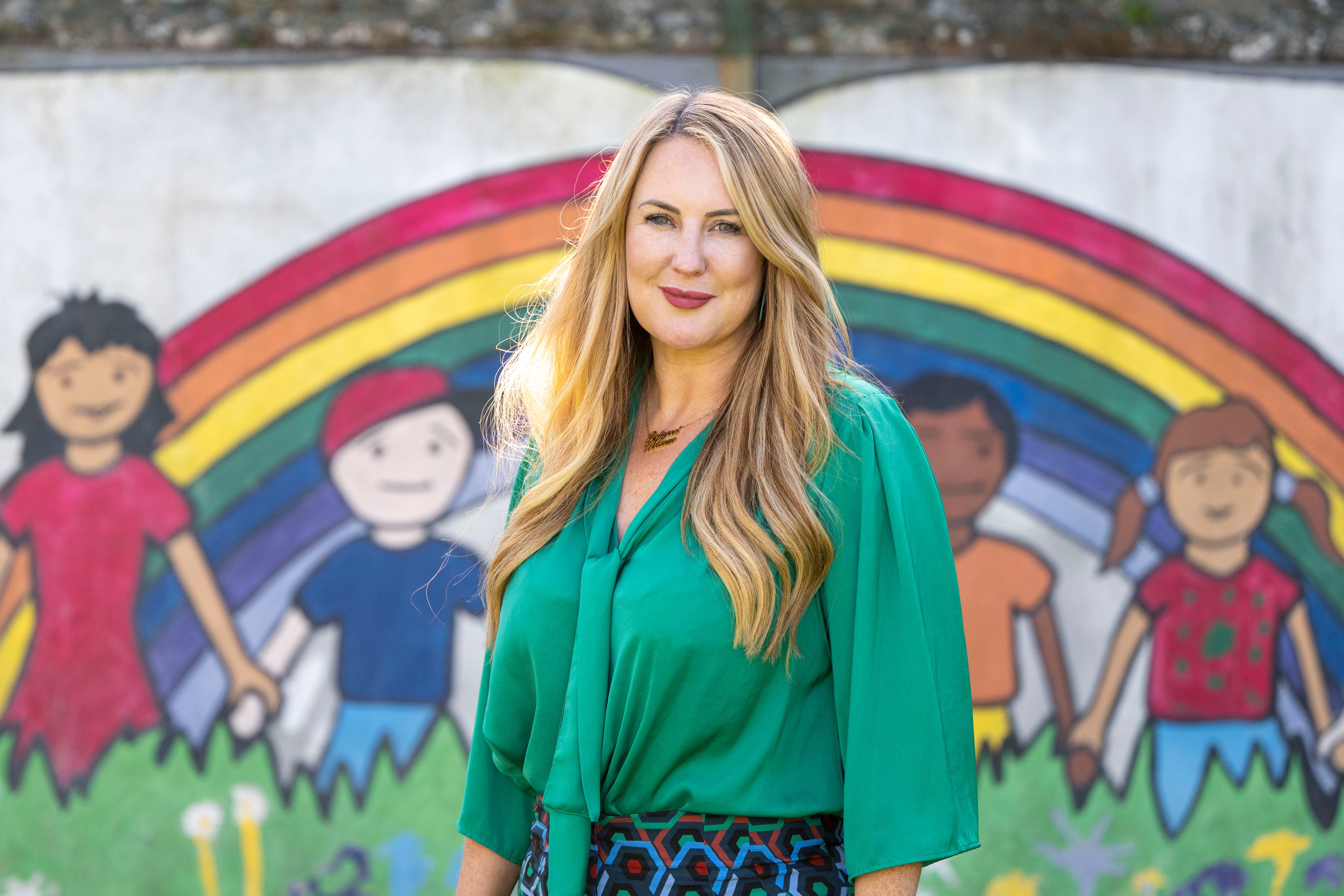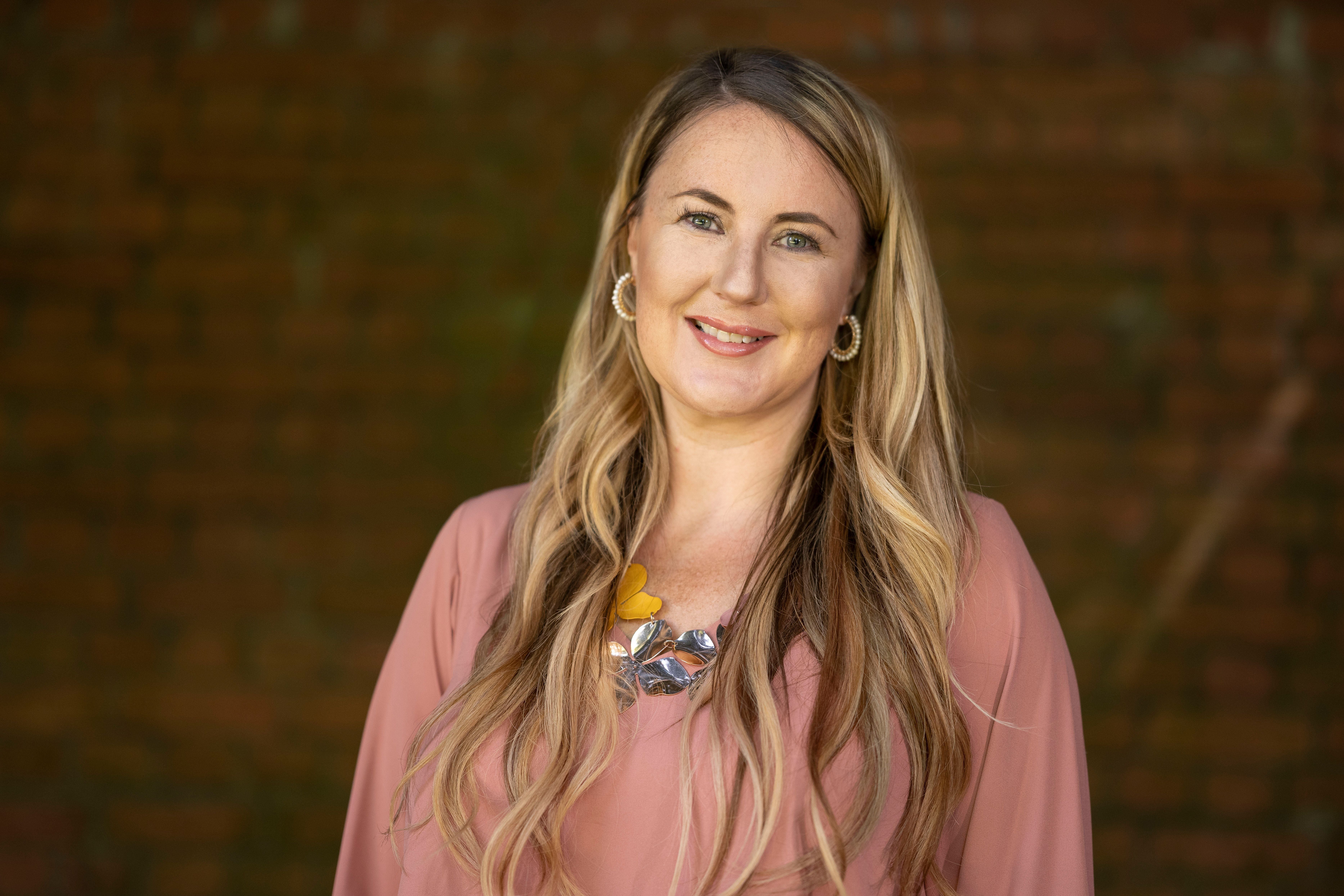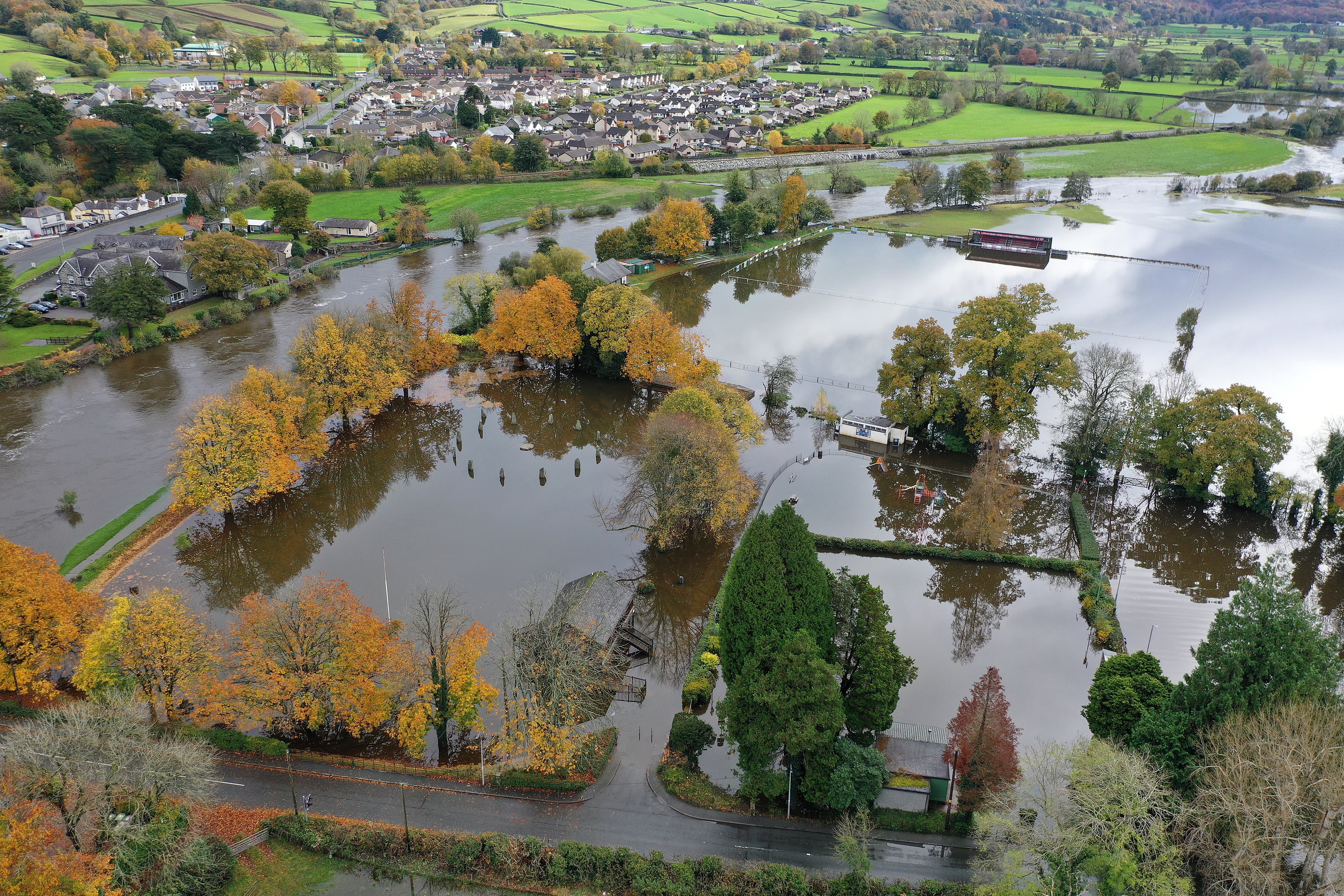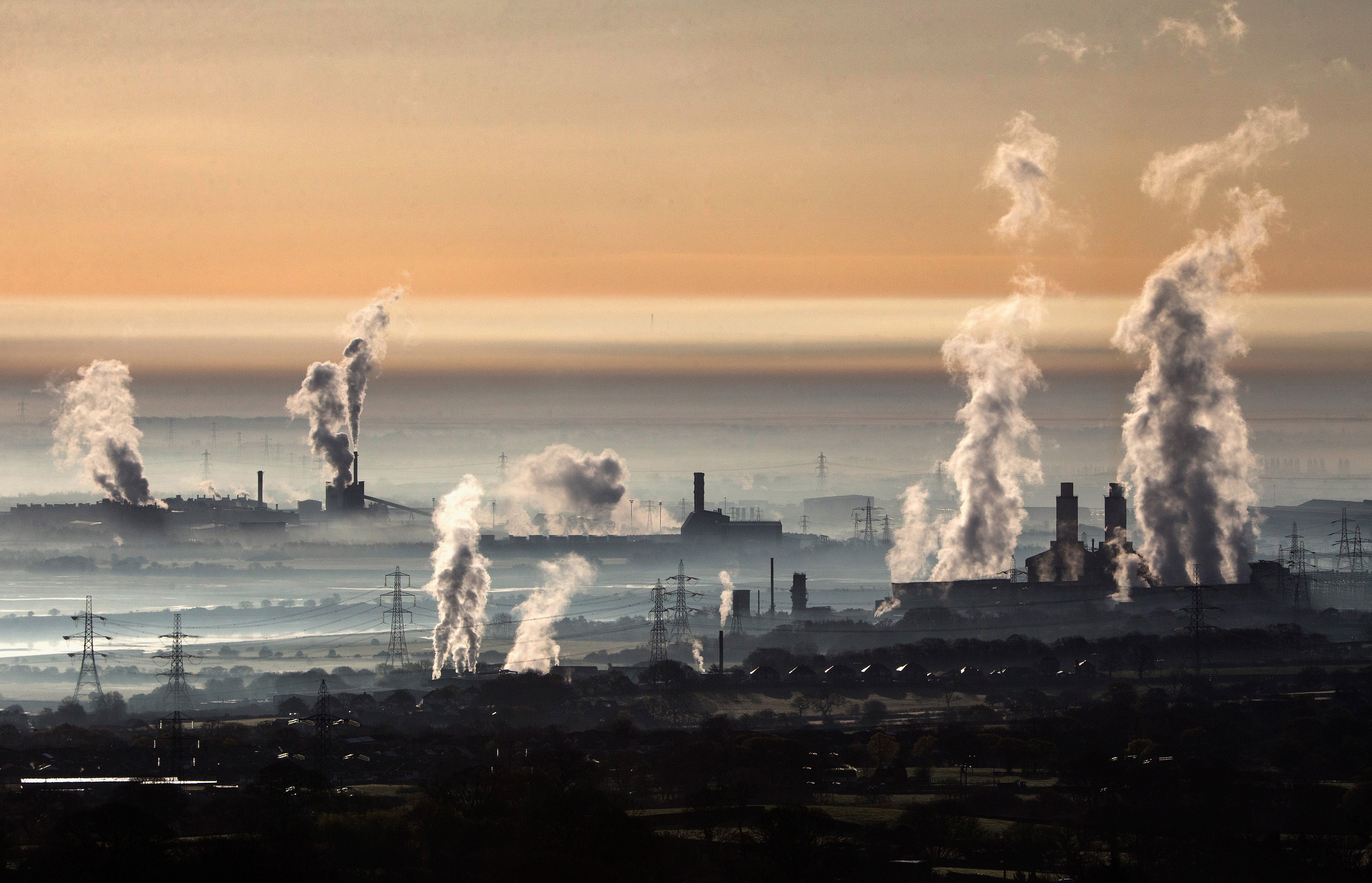Meet the world’s first future generations commissioner
Appointed with the purpose of holding the Welsh government and others to account, Sophie Howe is on a mission to shift the whole system towards ‘future-thinking’, she tells Heather Martin


Every country needs a Sophie Howe, the world’s first future generations commissioner. If we want a future, that is. But not every country has the foresight of Wales. When the Welsh Assembly was formed in the late 1990s, the Government of Wales Act included a clause stipulating that sustainable development should be a central organising principle. “Lofty ambitions,” Howe says, wryly, “but not much meat on the bone.” In reality, no one was checking. But still, it was “quite a thing at the time”.
Then along came Jane Davidson, “a particularly brilliant environment minister” and later, author of #futuregen: Lessons from a Small Country, who decided it was time to step up. There was no point asking her to help the government meet its obligations, she argued, without also asking the economy minister and the housing minister too. The first principle of sustainability was joined-up thinking. “Everything is connected to everything,” Howe says. “We’re not going to meet our carbon emissions targets if the housing minister is still building rubbish houses.”
In the run-up to the 2012 local elections, while the coalition government in Westminster was rowing backwards on sustainability, Davidson convinced the first minister that the Labour Party should commit to legislating for sustainable development, to put more meat on the bone. Then, having got the commitment into the manifesto, she promptly retired. “It could have completely flopped,” Howe reminisces, but luckily the brief landed on the desk of a minister who “could see that the principles were critical to the reforms Wales was trying to take forward in public services”.
At the same time the UN was formulating its own sustainable development goals. “Wales had very good connections into the international networks, so drew a lot from the best elsewhere.” Which is how the act morphed from a Sustainable Development Act to a Wellbeing of Future Generations Act: a much better name, Howe believes, because it reminds us of the high stakes in human terms. The establishment of a commissioner was part of that legislation, with the purpose of bestowing specific powers to hold government and others to account.
Howe grew up in Cardiff in the 1980s, in the neighbourhood of Ely, “one of those places that is always at the top of the index of multiple deprivation. There were high levels of worklessness and teenage pregnancy and domestic abuse – all those terrible indicators that show up so often in those communities.” But both her parents worked, her mother as a PA and her father as a diesel fitter, and by virtue of the fact that Sophie’s grandparents looked after her during the day, she went to school “in the leafy suburbs”.

“I genuinely believe that was a Sliding Doors moment for me, because the school at the end of my street that I should have gone to was a twice-failing school, and the kids who went there generally didn’t do very well.” Howe was the first in her family to go to university, where she not only studied law and politics, but got involved in politics, campaigning for gender balance in the first Assembly. At the age of 20, in her final year at Cardiff, she was selected to stand as councillor in the place she’d gone to school in. “I won the election at six months pregnant, finished my course, and became the youngest councillor in Wales.”
Howe went on to manage a legal department in the Equal Opportunities Commission and then to become deputy police commissioner for South Wales, the only woman in such a role in the country. Public service reform is her driving force. “If you work in public services, which I have all my life, you spend a lot of time dealing with problems that have already occurred and are getting worse, and trying to put them right. That’s my passion.” The problem she’s trying to fix these days is a broken system; the solution could change the world.
Howe recalls that the minister who eventually got the Wellbeing of Future Generations Act passed described it as the “Common Sense Act”. “Why do we have to legislate for common sense?” she asks, then answers her own question. “Because sadly, in government, sense isn’t very common.”
Even now, if we really upscale it, improving the quality of people’s homes by investing in energy efficiency, we could create 26,500 jobs in Wales
The act sets out five core principles for decision-making, requiring individuals and institutions to demonstrate that they’ve considered the long-term impact of what they’re planning; to prevent problems from occurring and deteriorating; to integrate thinking, choosing to do those things that have the biggest benefit across a range of goals; to work together, and to involve citizens. Forty-four public institutions are covered by the legislation, including the government itself, but also all the local authorities, fire and rescue services, Natural Resources Wales and Public Health Wales. All these bodies “have a duty to demonstrate how they’re taking decisions in a way which meets today’s needs without compromising the ability of future generations to meet their own”. Howe’s brief as commissioner, a role she’s held for the past six years, is to discourage short-term thinking and get ahead of the game.
To those who might challenge our right to legislate on behalf of the unborn child, to seek, effectively, to govern the future, Howe would counter with common sense: since every decision we make has consequences, we’re doing that anyway, so we might as well do it better, more thoughtfully, and as best we can. Nor will she be deflected by those who say we’ve got enough problems to deal with in the here and now; rather her resolve is redoubled, and laced with optimism. “There are things we can do which benefit both current and future generations, and we have to have that in our minds and choose to do those things.” Everything is connected. The present and the future are not mutually exclusive. Rather than choosing one over the other, we should advocate for both.
Howe cites housing as a live example, ruing the missed opportunities of 10 or 15 years ago. “Even now, if we really upscale it, improving the quality of people’s homes by investing in energy efficiency, we could create 26,500 jobs in Wales. At the same time we take people out of fuel poverty, because their bills will reduce, and help meet our emissions targets, because 14 per cent of emissions come from homes. And creating those 26,500 jobs has a long-term benefit in taking those people out of poverty as well, improving the prospects for their children.” Howe envisages a virtuous circle of decision-making in which we build on strong foundations, rather than patching things up all the time.

Sustainability is not reducible to the environment. The Wellbeing of Future Generations Act sets out seven connected goals: prosperity, resilience, health, equality, community cohesiveness, culture and language, and global responsibility. Attend to these, and you’re caring for the environment too. “When you come at something from a single track you miss all the wider connections, and risk overlooking those other sectors you need to get engaged and involved. The approach I’ve always taken is: partnership first, or, who can we partner with on this?”
She describes her police force experience of tackling violence against women, and the introduction of the Ask and Act policy requiring frontline practitioners to assume collaborative responsibility before a victim is driven to dial 999. “A woman will experience about 36 instances of domestic abuse before she reports it. During those 36 incidents, she’s not talking to the police, but she is talking to a midwife, a health visitor, her GP, her dentist, her hairdresser: all these different people who haven’t seen domestic abuse as their problem but could intervene to make a difference. So some of what I did was shift resources into health, midwifery and GP surgeries, so we could try and pick this stuff up before the 36 incidents.”
Every major global corporation will have tens or hundreds of Greta Thunbergs working for them, younger generations who care, who are only going to give their skills to a company that supports their values
Howe’s five children are fluent Welsh speakers (she describes herself as a learner), and she instinctively thinks in multilingual terms. “I might be talking the language of police, but actually I need to be talking the language of health. I need to be asking why health practitioners are testing for pre-eclampsia but not domestic violence, where there is a much higher risk. I need to be talking about safeguarding and intervention, and that same principle can be applied to everything. We have to be saying to the economy minister, this isn’t just about bringing in low-paid labour, this is about long-term prospects for people who need decent, low-carbon jobs.” Impact, prevention, integrated thinking, working together and involving citizens: the five principles are second nature to her.
Unsurprisingly, Howe does a lot of work in schools. She recently visited Roath Park Primary, which was holding its own Cop26 and has its own first minister and minister for future generations. She also runs a leadership academy for 18- to 30-year-olds, who come together to work on change in their organisations and even reverse-mentor establishment leaders, challenging them to see issues from a future-generations perspective – the academy currently has young leaders mentoring the permanent secretary of the Welsh government and the chief executive of the Welsh Football Association, among others.
The most recent IPCC report classifies 40 per cent of the world’s population as highly vulnerable to the impact of climate change. In South Wales alone, severe flooding in February 2020 wiped out whole towns for months. “People in the valleys are poor, and having to choose between paying their heating bill or paying their insurance. When something like that happens, they don’t have the capacity to recover. In the global south, land is so damaged by climate that people can no longer grow food.” It doesn’t matter how much you invest in renewable energy: if your system of governance is broken, you’re simply throwing good money after bad. Howe scrutinises the budget each year with precisely this kind of fragmented thinking in mind. “In the first few years I was saying: OK, Welsh government, you’re investing X million in tackling the climate crisis, well done; over here, however, you’re spending 75 per cent of your infrastructure budget on building roads. The second cancels out the first, because you haven’t applied the Future Generations Act.”

What Wales can offer the world, Howe believes, is “thought leadership” on how to shift a whole system towards “future-thinking”. Simply having a future-thinking lens prompts people to start doing things differently.
Sometimes it can feel like a drop in the ocean. Howe thinks back to when Donald Trump pulled out of the Paris Climate Agreement, and the widespread feeling of hopelessness. “But when you look at the facts in the US, itself a major emitter, it’s more important what the states and regions are doing. In California, for example, they were saying no, we’re going to stick to our stringent climate targets, we’re going to be investing in those areas, and it’s the same in Wales. There are lots of small states and regions across the world who are the leading lights on this, who are going to control whether we’re all driving our cars or whether we’re using public transport.”
She’s buoyed by the positive agenda in business, as evidenced at Glasgow’s Cop26. Not only are companies beginning to realise that “there’s no business on a dead planet”, but they’re waking up to their own workforces too. “Every major global corporation will have tens or hundreds of Greta Thunbergs working for them, younger generations who care, who are only going to give their skills to a company that supports their values.” Consumers likewise are increasingly taking power into their own hands by making ethical choices. “Businesses have finally realised that they have to get with the programme if they are going to survive themselves.”

These days Howe sits on an expert group advising the UN secretary-general. In September 2021, the UN published a report entitled “Our Common Agenda”, which involves creating a new UN Special Envoy for Future Generations, negotiating a Declaration on Future Generations that could give future people legal standing, and hosting a Futures Summit in 2023. The revolutionary concept at its heart is that we should seek to govern problems that span not just spatial boundaries but also temporal ones, thereby laying the groundwork for a new generation of future-oriented political institutions. The immediate focus, Howe argues, must be on embedding future-thinking reform across UN governance itself, entailing specific obligations on each of the UN institutions to demonstrate how they are applying those all-important five principles to every decision they take.
There’s a long way to go. So far the only region to follow Wales’s visionary lead in backing up theory with legislative practice is Gibraltar. The Netherlands has a future generations commissioner in waiting. Israel had an actual commissioner a few years ago, and even gave him power of veto, but he was so challenging to parliament that they abolished both him and his role after the first term. It’s a fine balance, setting the bar high but bringing people with you at the same time. In Brexit Britain we rely on the good offices of Big Issue co-founder Lord Bird, who is taking forward a private member’s bill based on Welsh legislation for a Future Generations Act of the UK. “That’s going through the parliamentary process at the moment, and gaining quite a bit of traction.” Meanwhile, a Future Generations Act is part of the SNP manifesto, and Ireland too is talking to Wales. As Howe says, it’s the smaller states that are getting things done.
Howe tells me that the Welsh government recently imposed a moratorium on road building. All proposals are being reviewed, and so far two have been permanently cancelled. “The really interesting issue here is that people are doing the things they’ve always done. Got a problem with congestion? Build a road. Got a problem with congestion? Ask the highways engineers what we should do about it.” But traditional thinking is getting us nowhere. Rather, if we have a problem, we have to find a way to deal with it that is also going to improve health and reduce socioeconomic disadvantage, meet our carbon emissions targets and better our communities. Otherwise, we risk crippling future generations with a legacy of long Covid-style problems.
It’s all in the holistic mindset. The first step lies in recognising that environmental, health, gender and racial inequalities are interconnected issues and that we have to work together at a global level to find collaborative solutions – to improve not just the wellbeing of people today, but of generations to come.
The world needs to be more Wales. Or as Sophie Howe puts it, with characteristic clarity and simplicity: “In Wales, we have a law which says you have to ask, and answer, each question in future-thinking ways.”




Join our commenting forum
Join thought-provoking conversations, follow other Independent readers and see their replies
Comments